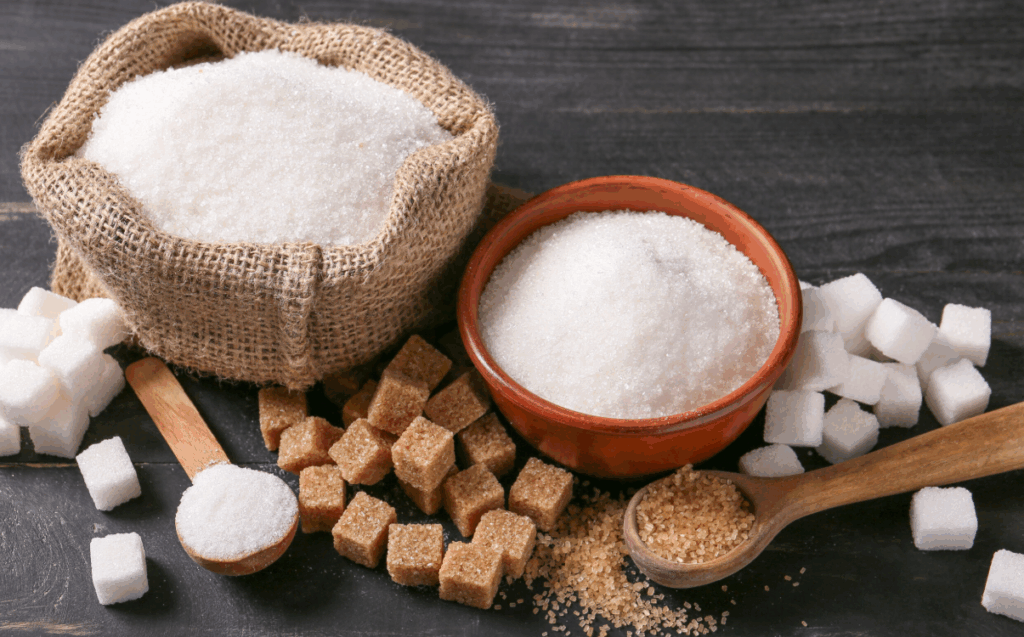During weight cuts, you’ll want to avoid high-sodium foods like processed meats and canned soups that cause water retention. Skip refined sugars found in sports drinks and pastries, as they trigger energy crashes that derail training. Processed foods with hidden additives can disrupt digestion and slow metabolism.
Also, limit gas-producing vegetables like broccoli that cause bloating. Smart substitutions like fresh proteins and complex carbs will make your weight cut more efficient and comfortable.
Understanding Weight Cutting in Boxing
While many sports involve weight management, boxing stands apart with its rigorous weight-cutting practices before fights. You’re fundamentally manipulating your body composition to compete in a specific weight class while maintaining ideal strength and power.
Effective weight cutting balances strategic nutrition and hydration without compromising energy levels. When done properly, you’ll shed excess weight while preserving muscle mass and athletic performance. However, improper methods can dramatically slow your metabolism, impair recovery, and diminish your fighting ability.
Smart boxers understand that weight cutting isn’t just about making numbers on a scale. It’s about arriving at weigh-in ready to rehydrate and perform at your peak when the bell rings.

High-Sodium Foods and Water Retention
Because sodium directly impacts fluid balance in your body, it becomes one of the most critical dietary factors during weight cuts. When you consume high-sodium foods, your body retains water to maintain proper electrolyte concentration, adding unwanted pounds that compromise your weight-in targets.
During pre-fight preparation, avoid obvious culprits like processed meats, canned soups, and fast food. Also watch for hidden sodium in condiments, sports drinks, and pre-packaged meals. Timing matters too. Excessive salt intake 48-72 hours before weigh-ins can derail weeks of disciplined training.
While managing sodium, remember that extreme restriction carries dehydration risks that impact performance. Gradually reduce intake rather than eliminating it, ensuring your body functions efficiently while still making weight safely.

Processed Foods and Hidden Additives
Processed foods present a major obstacle during weight cuts, often concealing a dangerous combination of sodium, sugar, and artificial ingredients that sabotage your weigh-in goals. These convenience items might seem harmless, but they can disrupt your digestive health through preservatives and chemical additives that slow metabolism.
Pre-packaged meals, frozen dinners, and “diet” products typically contain refined sugars under deceptive names, triggering inflammation while complicating your caloric intake calculations. Even foods marketed as healthy can contain hidden trans fats and inflammatory oils that compromise recovery.
Replacing processed options with whole foods guarantees your body processes nutrients efficiently. Remember that ingredients you can’t pronounce often signal chemicals your body can’t efficiently process while trying to shed those essential pounds.
Refined Sugars and Energy Crashes
Although they provide a quick energy burst, refined sugars create devastating performance cycles that sabotage a boxer’s weight cut. With sugary foods, your blood glucose spikes quickly, which causes an excess of insulin production that causes energy crashes during critical training sessions.
These crashes dramatically reduce your endurance when you need it most. Common suspects are sports drinks, candy, and pastries. Even seemingly healthy options like flavored yogurt or granola bars may cause blood glucose spikes. Its impact goes beyond temporary weakness. It can create additional hunger, disturb sleep, and mess with recovery.
To maintain steady energy levels, replace refined sugars in your diet with complex carbohydrates like sweet potatoes, oats, and quinoa that provide sustained fuel without the dramatic blood sugar fluctuations.

Foods That Cause Digestive Issues
While managing blood sugar is essential during weight cuts, digestive comfort can make or break your performance in the ring. Your boxing nutrition strategy should eliminate foods that slow digestion and cause bloating when you’re cutting weight.
Avoid high-fat, greasy meals that burden your digestive system and interfere with proper macronutrient absorption. These foods remain in your stomach longer, so you feel discomfort and fatigue while training. Gas-producing vegetables like broccoli, cauliflower, and Brussels sprouts may cause bloating despite their nutrition benefits.
Watch your fiber intake. Excess fiber creates digestive distress, but the deficit creates constipation. Maintain electrolyte balance without eating GI foods during weight cuts. That balance means you can put on weight comfortably without sacrificing fight day energy.
Smart Food Substitutions for Weight Cuts
Rather than simply eliminating problematic foods, successful boxers replace them with strategic alternatives that support weight management without sacrificing performance.
Swap high-sodium deli meats for fresh, lean proteins like chicken breast, white fish, and egg whites to maintain muscle while minimizing water retention. Replace refined carbs with complex options like sweet potatoes, quinoa, and oats that provide steady energy during training sessions.
For sodium reduction, use fresh herbs and spices instead of salt-heavy condiments. When you need healthy fats, choose avocados, olive oil, and nuts in controlled portions rather than fried foods or processed snacks.
Opt for water, herbal teas, and electrolyte drinks without added sugars to maintain fluid balance while cutting weight.
Frequently Asked Questions
How Does Alcohol Consumption Affect Weight Cutting?
You’ll harm your weight cut with alcohol. It dehydrates you, slows metabolism, disrupts sleep, increases fat storage, and causes poor training decisions. Avoid it completely during fight preparation.
Should Boxers Take Supplements During Weight Cuts?
You should limit supplements during weight cuts. Stick to essential ones like electrolytes and protein to preserve muscle. Avoid pre-workouts with excessive caffeine or products containing hidden sodium, sugar, or artificial ingredients.
How Does Sleep Quality Impact Weight Management Before Fights?
Poor sleep disrupts your hormones that regulate hunger and metabolism. You’ll crave unhealthy foods, retain water, and struggle with recovery. Prioritize 7-9 hours nightly to maintain weight control before fights.
When Should Boxers Start Their Weight-Cutting Process?
You should start your weight-cutting process 8-12 weeks before your fight, focusing on gradual reduction first through nutrition and training, then addressing water weight only in the final week.
Can Rehydration Methods Affect Performance After Weigh-Ins?
Yes, your rehydration methods directly impact performance. Rapid IV hydration can cause electrolyte imbalances, while slow, consistent oral rehydration with electrolytes optimizes muscle function and endurance after weigh-ins.





